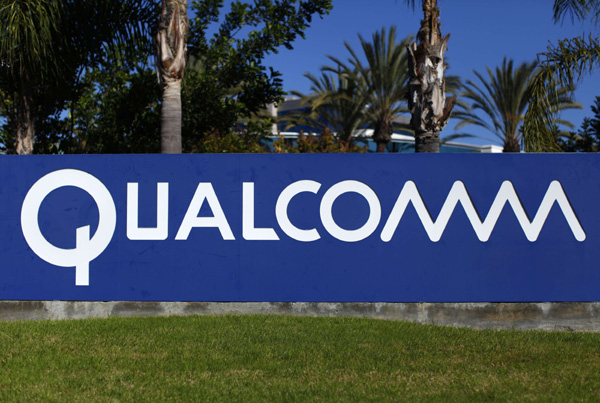Looking beyond the chip frontier
By Gao Yuan (China Daily) Updated: 2015-08-14 08:30
 |
|
A Qualcomm sign is pictured in front of one of its many buildings in San Diego, California November 5, 2014. [Photo/Agencies] |
What could be the next big thing for the electronics market?
One area that I am really excited about right now is that I own a sports team (Sacramento Kings in the NBA).
We did a demo where we used a camera based on the Augmented Reality technology that could capture all around you and we put that in the court-side seats, and then watched it through a virtual reality headset.
It really felt like you were at the game on this side of the court, which is a great way to see the game.
I think this is how people are going to watch sports in the future. They are going to have the best seats in the stadium.
Maybe in the stadium itself you will have a really good bandwidth and connection and you have a great experience, and at home you will have a really good experience and watch as if you are there and just looking around.
In the future it won't just be you sitting in the seats. It might be like you are the player.
You can play American football, running through the crowd, the huge guys want to crash you, and it makes you feel like you are in the fields. I think this will be a big deal.
Is Qualcomm today still the same company after the antitrust investigation?
I think we are doing the things that we did before because we were focused on partnerships even in the beginning.
But I feel like the relationships have maybe gone up a notch, and it really was good because it made us think carefully about when you are in a market, especially in a country as important as China, you need to always make sure that you are giving back.
So, I wouldn't say that we are a different company, but maybe just more focused on where we are in the ecosystem and have more responsibilities on that.
Now we have a chance to meet with some of the senior government officials, and they know Qualcomm and they know the types of investments we are making and the projects we are doing. And that's a big change.
We were here (in China), but we weren't well known, we were known in the industry and to the operators, and we were known for Snapdragon. But I don't think we were known that well in the government, and I think we are now. I think like that, because I have only been executive chairman for a short time.
What's your biggest accomplishment at Qualcomm?
I think I did a lot of work that caused the wireless Internet and the smartphone revolution to happen.
We were very early on in putting the Internet protocols into the phone and there was an engineer, who did the initial work in putting the protocols in, but it was me and my team that really figured out how to get it commercialized in the market.
Once we realized that, we said, well now the phone is going to be the center of your life. So we put the global positioning system in, and built the basic resource unit downloads system.
I feel very proud of being part of that and very lucky because I was in the right place at the right time with the right set of experiences to know. I really put all of my energy and passion into that, and it turned out well.
- 2015 China International Fair for Investment and Trade kicks off in Xiamen
- China's commodity imports robust in Jan-Aug period
- China stocks rebound 2.92%
- 2015 China box office already past 2014 total
- China foreign trade decline widens in August
- Interview: JP Morgan's senior executive bullish on China
- Innovation, development the focus for NZ mayors
- Lives of freelancers

















